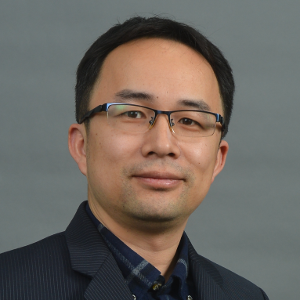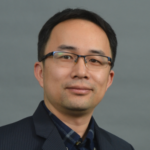
11 Dec Interview with Joe Zhang of Burning Rock Dx

Dr. Zhang obtained PhD degree from Duke University in 2005. After completing his postdoctoral studies at the University of Washington and Howard Hughes Medical Institute in 2008, he then joined Illumina R&D as a assay development scientist in San Diego, and participating in multiple microarray and sequencing consumables development activities. As a team leader, he developed and launched dual-indexed Illumina library prep and sequencing products. He also led or contributed to the launch of multiple other TruSeq and Infinium products. In 2016, he joined BurningRock Dx, a leading Chinese start-up company focused on cancer diagnostics. Read his full bio.
Interview with Joe Zhang of Burning Rock Dx
Q: Genomic medicine is entering more hospitals and bringing with it non-invasive technology that can be used to better target and treat diseases. What are some key milestones that contributed to this trend?
A: The milestones in my mind include the first FDA clearance of Next Gen Sequencing instrument, MiSeqDx in 2013, this opened a new door for clinical utilization of parallel gene alteration detection in clinical setting. Another one is the approval of blood based EGFR test Cobas v2 in 2016, this is the first non-invasive gene mutation detection assay approved by FDA.
Q: What technological advancements are driving this change?
A: The rapid development of the next gen sequencing and related library prep methodology, and the clinical utilization of circulate cell-free DNA as the biomarker. Using the examples of liquid biopsy, due to the scarcity of circulate tumor DNA (ctDNA) in the plasma, the concept of parallel detection boosted the detection sensitivity dramatically. This enables cancer early detection, minimal residue disease monitoring which was not possible. The discovery of various biomarkers such as driver gene mutation, epigenetics change, tumor mutation burden, etc, provided a comprehensive way of cancer diagnosis, prognosis, and therapy.
Q: What is required to see a more wide-spread adoption in the clinical sector?
A: The technology development must be accompanied by the real clinical utility exploration. Otherwise it is only a research tool instead of a clinical tool. For example, single cell based technology analysis is very hot now but it needs more transformation to become useful in clinical setting. On the other side, in clinical sector, easy-to-use and sample-to-answer solutions are very much desired. Most current research and translational technologies are too complicated to be fully adopted. Further technology innovation is needed to improve this aspect.
Q: There are some obvious hurdles we need to overcome, which include but are not limited to: a. addressing the reimbursement challenges, b. ensuring access to genetic counseling for everyone, c. having access to technological solutions that support genomic data at scale, d. testing for mainstream medical practice, e. or having access to population biobanks. Can you speak to one or many of the above mentioned hurdles and how we can best address them as a community within the ecosystem of genomic medicine?
A: One of challenges of current genomic medicine is that the data scale is unprecedented. This brings two layers of problems above mentioned. First, the massive nature of genomic data required better computation and storage solutions. Local server or cluster solution ultimately will not be enough. The cloud-based solution adoption in clinical sector requires better justification of data security and accessibility. Second, the genomic data is an ocean of unknown information. The conventional single or oligo sites diagnostic mode is no longer suitable in the genomic medicine era. To better interpret the genomic data requires the up-to-date knowledge sharing and data aggregation. Recent recognition of ClinGen database by FDA as the first FDA-designated public genetic variants repository is a positive movement to promote data sharing and evidence tracking.
Q: Is there anything else you would like to share - in the context of Genomic Medicine - with the PMWC audience?
A: I would like to highlight the genomic medicine development in China. China is a very booming market and field for clinical genomics. Almost every major US technology and clinical companies in this sector is seeking market opportunity in China. There are hundreds of companies and labs established in China to provide translational and clinical services such as NIPT and cancer diagnosis. Established in 2014, Burning Rock Dx (BR) became the leading company in China focusing on cancer diagnostic service and application. In less than five years, more than 80,000 cancer samples have been processed in BR CLIA certified lab in-house. In 2018, the first NGS-based Lung Cancer IVD kit by BR was approved by NMPA (China FDA). Inspired by FDA approved F1CDx, Oncomine Dx etc, many comprehensive NGS-based oncology panel assays are currently under development to seek for NMPA clearance in China.






